|
Books Should Be Free Loyal Books Free Public Domain Audiobooks & eBook Downloads |
|
|
Books Should Be Free Loyal Books Free Public Domain Audiobooks & eBook Downloads |
|
Science |
|---|
|
Book type:
Sort by:
View by:
|
By: Marion Harland (1830-1922) | |
|---|---|
 The Secret of a Happy Home (1896)
The Secret of a Happy Home (1896)
| |
 Marion Harland's Complete Etiquette
Marion Harland's Complete Etiquette
Haven't you always wondered how to properly accept a formal dinner invitation? Perhaps you have a débutante under your wing, in which case you need to make sure her appearance in society goes perfectly, to increase her chances of a brilliant match. And what exactly would be your duties as her chaperon? These and many other questions are expertly answered by Marion Harland in this little volume. - Summary by Carolin | |
By: Marion Zimmer Bradley | |
|---|---|
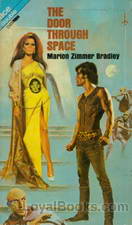 The Door Through Space
The Door Through Space
At one time Race Cargill had been the best Terran Intelligence agent on the complex and mysterious planet of Wolf. He had repeatedly imperiled his life amongst the half-human and non-human creatures of the sullen world. And he had repeatedly accomplished the fantastic missions until his name was emblazoned with glory. But that had all seemingly ended. For six long years he’d sat behind a boring desk inside the fenced-in Terran Headquarters, cut off there ever since he and a rival had scarred and ripped each other in blood-feud... | |
 Year of the Big Thaw
Year of the Big Thaw
| |
By: Marjory MacMurchy Willison (-1938) | |
|---|---|
 The Canadian Girl at Work A Book of Vocational Guidance
The Canadian Girl at Work A Book of Vocational Guidance
| |
By: Mark Clifton (1906-1963) | |
|---|---|
 Sense from Thought Divide
Sense from Thought Divide
| |
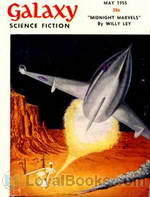 A Woman's Place
A Woman's Place
| |
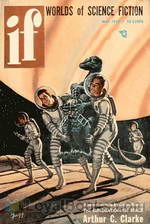 The Kenzie Report
The Kenzie Report
| |
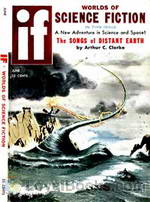 Do Unto Others
Do Unto Others
| |
By: Mark Phillips (Randall Garrett and Laurence M. Janifer) | |
|---|---|
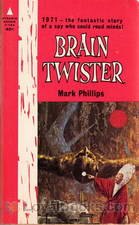 Brain Twister
Brain Twister
“Mark Phillips” is, or are, two writers: Randall Garrett and Laurence M. Janifer. Their joint pen-name, derived from their middle names (Philip and Mark), was coined soon after their original meeting, at a science-fiction convention. Both men were drunk at the time, which explains a good deal, and only one has ever sobered up. A matter for constant contention between the collaborators is which one. Originally published as That Sweet Little Old Lady, Brain Twister follows the adventures of FBI agent Kenneth J... | |
By: Mark Wicks | |
|---|---|
 To Mars via The Moon An Astronomical Story
To Mars via The Moon An Astronomical Story
| |
By: Martha Meir Allen (1854-1926) | |
|---|---|
 Alcohol: A Dangerous and Unnecessary Medicine, How and Why What Medical Writers Say
Alcohol: A Dangerous and Unnecessary Medicine, How and Why What Medical Writers Say
| |
By: Mary Proctor (1862-1957) | |
|---|---|
 Stories of Starland
Stories of Starland
Henry asks his sister Mary about the sky. She tells him all about the Sun, the Planets, the Moon, Comets and Meteors, and Stars. Mary tells her brother about mythologies people believed about the earth and sky along with true scientific information. | |
By: Mary Earle Hardy (1846-1928) | |
|---|---|
 Sea Stories for Wonder Eyes
Sea Stories for Wonder Eyes
Water is fascinating! Which child is not delighted by the sea shore, by rivers, even by puddles in the street? This little book explains to children that a river can cut through rock to weave its way to the sea, how sand is made, and how fish can breathe underwater. Grown-ups may learn some new things, too! - Summary by Carolin | |
By: Mary Ellen Richmond (1861-1928) | |
|---|---|
 Friendly Visiting among the Poor A Handbook for Charity Workers
Friendly Visiting among the Poor A Handbook for Charity Workers
| |
By: Mary Everest Boole (1832-1916) | |
|---|---|
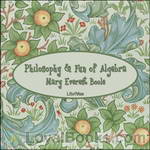 Philosophy and Fun of Algebra
Philosophy and Fun of Algebra
Mary Everest Boole (1832-1916) was born Mary Everest in England and spent her early years in France. She married mathematician George Boole. She was the author of several works on teaching and teaching mathematics in particular. This short book, Philosophy and Fun of Algebra, is meant to be read by children and introduces algebra and logic. She uses the word “algebra” broadly, defining it as a “method of solving problems by honest confession of one’s ignorance”. Using this definition, Boole introduces, in a conversational manner, the concepts of logic and algebra, illustrating these concepts with stories and anecdotes, often from biblical sources... | |
By: Mary F. Porter | |
|---|---|
 Applied Psychology for Nurses
Applied Psychology for Nurses
| |
By: Mary Huestis Pengilly | |
|---|---|
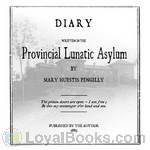 Diary Written in the Provincial Lunatic Asylum
Diary Written in the Provincial Lunatic Asylum
Mary Pengilly was taken to a Lunatic Asylum by her sons where she kept a diary, which this book is taken from. Mary records the harsh conditions and treatments received at the hands of the nurses during her stay. Once Mary is released she takes it upon herself to make the authorities aware of the situation at the Provincial Lunatic Asylum. | |
By: Mary L. Day (1836-) | |
|---|---|
 The World As I Have Found It Sequel to Incidents in the Life of a Blind Girl
The World As I Have Found It Sequel to Incidents in the Life of a Blind Girl
| |
By: Mary Marcy (1877-1922) | |
|---|---|
 Stories of the Cave People
Stories of the Cave People
"In this little book I have sought, in a series of stories or sketches, to present only the first steps in human progress. Man has risen from a stage of lowest savagery, little higher than the apes, buffeted by the hand of Nature, dependent upon the wild game he might kill or the food he found ready to hand, a fearing and a furtive creature of the forests and of the plains, preyed upon by a thousand stronger foes, to a being able to provide warmth and clothing and shelter against the rains and the cold and food against the seasons... | |
By: Mary Roberts Rinehart (1876-1958) | |
|---|---|
 Why I Believe in Scouting for Girls
Why I Believe in Scouting for Girls
| |
By: Mary Shauffler Labaree (1868-1954) | |
|---|---|
 Child in the Midst: A Comparative Study of Child Welfare in Christian and Non-Christian Lands
Child in the Midst: A Comparative Study of Child Welfare in Christian and Non-Christian Lands
Chapters follow the progression of a child from birth through working years.Thus, Chapter 1 traces the child from newborn to toddler stage in the home. It includes assumed rights of children and mothers, superstitions, diseases and treatments, and what missions are contributing. Continuing on, Chapter 2 compares homes in various countries, explains the need for teaching the mothers, and delves into roles of fathers and missions. Other chapters explore the importance of play, the clash between play and work, views on education, and the role of worship. | |
By: Mary Somerville (1780-1872) | |
|---|---|
 Personal Recollections, from Early Life to Old Age, of Mary Somerville
Personal Recollections, from Early Life to Old Age, of Mary Somerville
| |
By: Mary Wollstonecraft (1759-1797) | |
|---|---|
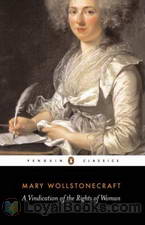 A Vindication of the Rights of Woman
A Vindication of the Rights of Woman
Regarded as the one of the earliest examples of feminist philosophy, A Vindication of the Rights of Woman is written as a direct response to Charles Maurice de Talleyrand-Périgord, a French politician who delivered a report to the French National Assembly suggesting that women should only receive domestic education and additionally encourages women to stay clear of political affairs. In her treatise, Wollstonecraft avidly criticizes this inadequate perception of women as an inferior sex and attacks social inequality, while also arguing for women’s rights in the hope of redefining their position both in society and in marriage... | |
 Vindication Of The Rights Of Men, In A Letter To The Right Honourable Edmund Burke; Occasioned By His Reflections On The Revolution In France
Vindication Of The Rights Of Men, In A Letter To The Right Honourable Edmund Burke; Occasioned By His Reflections On The Revolution In France
Wollstonecraft's A Vindication of the Rights of Men attacks aristocracy and advocates republicanism. It was published in response to Edmund Burke's Reflections on the Revolution in France , which was a defence of constitutional monarchy, aristocracy, and the Church of England, and an attack on Wollstonecraft's friend, the Rev Richard Price. Hers was the first response in a pamphlet war that subsequently became known as the Revolution Controversy, in which Thomas Paine's Rights of Man became the rallying cry for reformers and radicals... | |
By: Mary Wollstonecraft Shelley | |
|---|---|
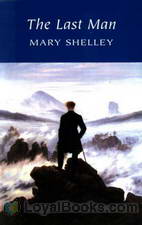 The Last Man
The Last Man
The Last Man is an early post-apocalyptic science fiction novel by Mary Shelley, which was first published in 1826. The book tells of a future world that has been ravaged by a plague. The plague gradually kills off all people. Lionel Verney, central character, son of a nobleman who gambled himself into poverty, finds himself immune after being attacked by an infected “negro,” and copes with a civilization that is gradually dying out around him. | |
By: Mary Wood-Allen (1841-1908) | |
|---|---|
 What a Young Woman Ought to Know
What a Young Woman Ought to Know
| |
 Almost A Man
Almost A Man
| |
By: Mason Long (1842-1903) | |
|---|---|
 Save the Girls
Save the Girls
Save the Girls is an 1880 American anti-white-slavery book by reformed gambler Mason Long. In it, the author crusades against the social evil of prostitution by presenting a series of pathetic portraits of young women from various social classes who are brought low by such temptations of city life as the theater, the racecourse, and street flirtations. Included are vignettes of vice like "The Evils of Dancing - Sad Results of a Public Ball," in which innocent Marie, out for a good time, falls prey to the type of 'sporting men' who prowl such events in search of a partner for more than just The Glide or the Boston Dip. | |
By: Massachusetts Homoeopathic Medical Society | |
|---|---|
 The Act Of Incorporation And The By-Laws Of The Massachusetts Homeopathic Medical Society
The Act Of Incorporation And The By-Laws Of The Massachusetts Homeopathic Medical Society
| |
By: Maude Ward Lafferty (1869-1962) | |
|---|---|
 A Pioneer Railway of the West
A Pioneer Railway of the West
| |
By: Maurice Leblanc (1864-1941) | |
|---|---|
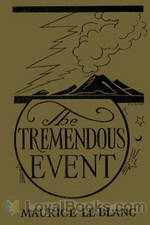 The Tremendous Event
The Tremendous Event
| |